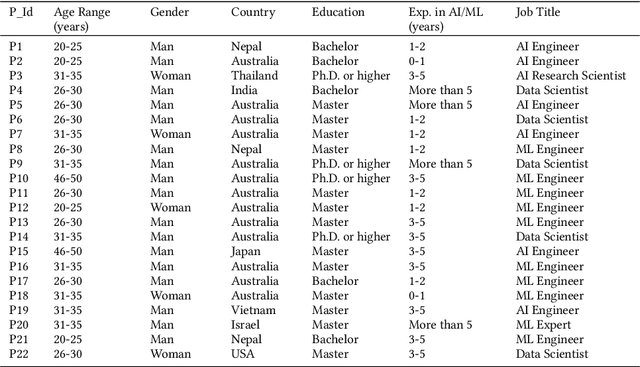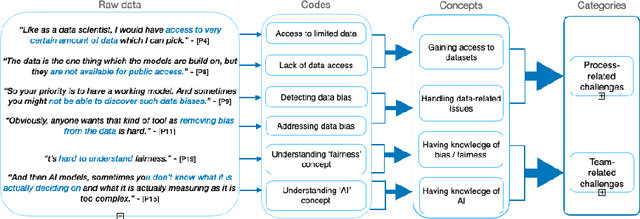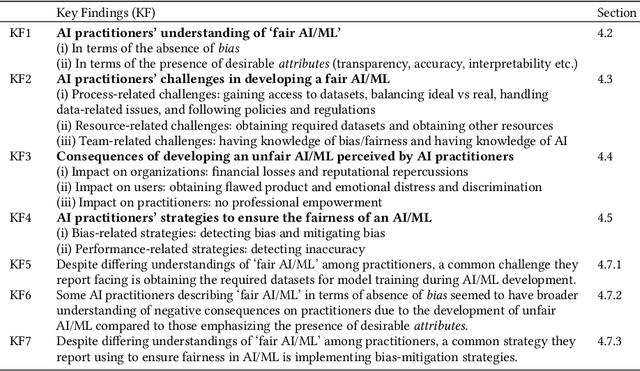Aastha Pant
Navigating Fairness: Practitioners' Understanding, Challenges, and Strategies in AI/ML Development
Mar 21, 2024



Abstract:The rise in the use of AI/ML applications across industries has sparked more discussions about the fairness of AI/ML in recent times. While prior research on the fairness of AI/ML exists, there is a lack of empirical studies focused on understanding the views and experiences of AI practitioners in developing a fair AI/ML. Understanding AI practitioners' views and experiences on the fairness of AI/ML is important because they are directly involved in its development and deployment and their insights can offer valuable real-world perspectives on the challenges associated with ensuring fairness in AI/ML. We conducted semi-structured interviews with 22 AI practitioners to investigate their understanding of what a 'fair AI/ML' is, the challenges they face in developing a fair AI/ML, the consequences of developing an unfair AI/ML, and the strategies they employ to ensure AI/ML fairness. We developed a framework showcasing the relationship between AI practitioners' understanding of 'fair AI/ML' and (i) their challenges in its development, (ii) the consequences of developing an unfair AI/ML, and (iii) strategies used to ensure AI/ML fairness. Additionally, we also identify areas for further investigation and offer recommendations to aid AI practitioners and AI companies in navigating fairness.
Ethics in the Age of AI: An Analysis of AI Practitioners' Awareness and Challenges
Jul 14, 2023



Abstract:Ethics in AI has become a debated topic of public and expert discourse in recent years. But what do people who build AI - AI practitioners - have to say about their understanding of AI ethics and the challenges associated with incorporating it in the AI-based systems they develop? Understanding AI practitioners' views on AI ethics is important as they are the ones closest to the AI systems and can bring about changes and improvements. We conducted a survey aimed at understanding AI practitioners' awareness of AI ethics and their challenges in incorporating ethics. Based on 100 AI practitioners' responses, our findings indicate that majority of AI practitioners had a reasonable familiarity with the concept of AI ethics, primarily due to workplace rules and policies. Privacy protection and security was the ethical principle that majority of them were aware of. Formal education/training was considered somewhat helpful in preparing practitioners to incorporate AI ethics. The challenges that AI practitioners faced in the development of ethical AI-based systems included (i) general challenges, (ii) technology-related challenges and (iii) human-related challenges. We also identified areas needing further investigation and provided recommendations to assist AI practitioners and companies in incorporating ethics into AI development.
 Add to Chrome
Add to Chrome Add to Firefox
Add to Firefox Add to Edge
Add to Edge